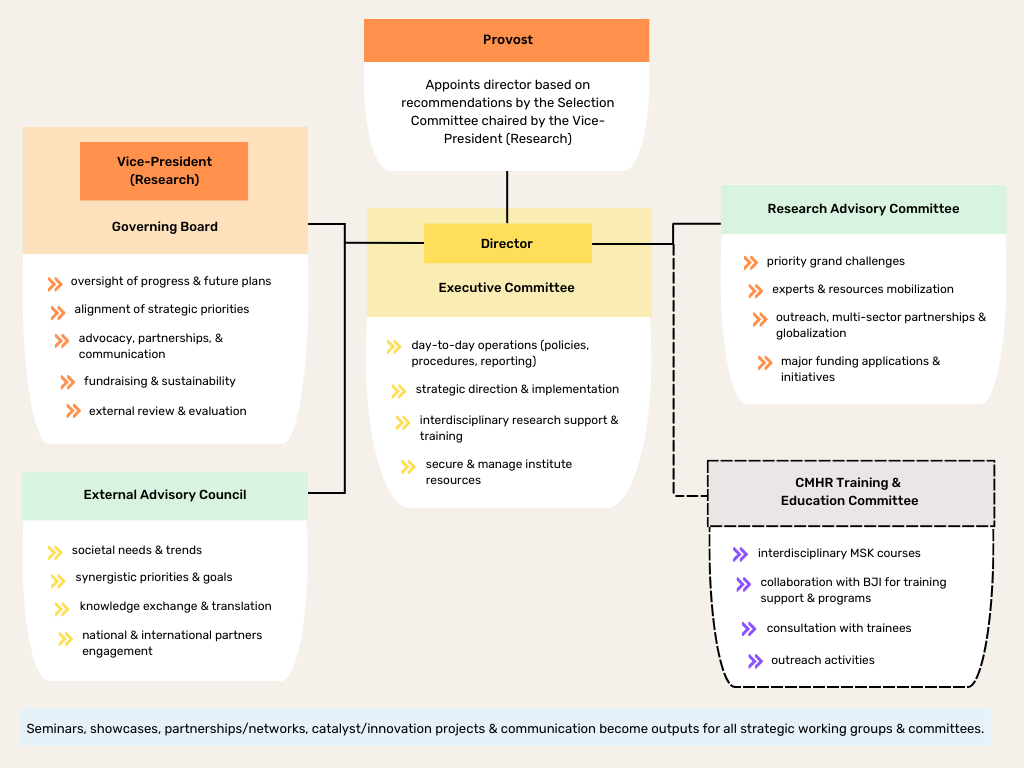Leadership and governance
Leadership team
BJI director
The achievement of the institute’s vision and mission constitutes the director’s primary responsibility. The director is appointed to a renewable five-year term, and reports to the Vice-President (Research), who is responsible for oversight of the strategic plan and the institute’s budget.
Associate directors
Associate Directors are nominated by institute faculty. Appointments are made by the Vice-President (Research) based on the recommendation of the institute director. Associate directors are responsible for advising and supporting the director in implementing strategic priorities via research programs, events and activities. Each associate director takes leadership of a particular portfolio.
Governance structure
Western Research Institutes are overseen by the University’s Research Institute Governing Board (GB) chaired by the Vice-President Research (VPR). The institute director reports to the VPR who has sign-off authority on overall vision and strategy, programs, budget allocations, and metrics of success. An annual report must be prepared by the director on the status, progress and immediate future plans of the research institute. The director also establishes the executive committee (EXEC), a research advisory committee (RAC) and an external advisory council (EAC).

Executive committee
The EXEC advises and supports the director with day-to-day operations that advance the mission of the BJI (e.g., establish institute-specific procedures and policies; develop, implement, evaluate and report on the institute.
Research advisory committee
The RAC makes recommendations to the director regarding research, scholarship and/or creative priorities, strategic initiatives, major funding opportunities or proposals, and programs or activities that support and advance BJI’s mission.
External advisory council
The EAC informs the director about local, national and international influences (e.g., potential sources of support, partnerships, trends, priorities) on the institute's work.

